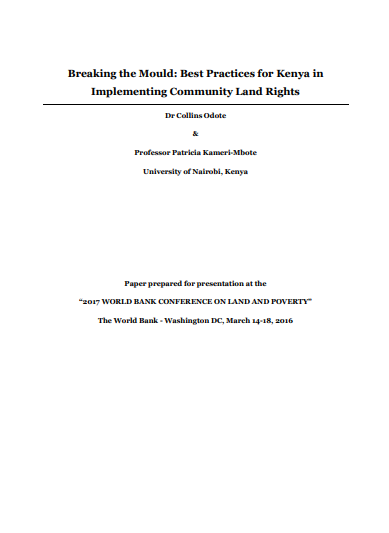HIV/Aids and its impact on land issues in Malawi
This paper investigates how HIV/AIDS affects land access, utilisation and control in Malawi, with a particular focus upon vulnerable groups. It presents findings on the effect of HIV/AIDS on land holding, household responses to HIV/AIDS (to ensure their ability to continue using land as a resource), implications for tenure, effect of HIV/AIDS on land administration institutions, and the role of national legal and policy frameworks.The paper recommends:Firstly, that there is a need to raise the profile of the challenge posed by HIV/AIDS to poverty reduction.


